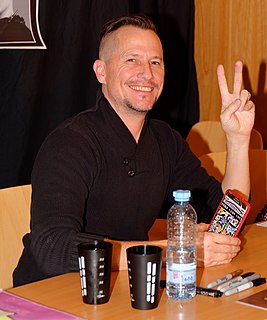A Quote by Oliver Wendell Holmes, Jr.
A word is not a crystal, transparent and unchanged; it is the skin of a living thought and may vary greatly in color and content according to the circumstances and time in which it is used.
Related Quotes
The circumstances of the world are continually changing, and the opinions of men change also; and as government is for the living, and not for the dead, it is the living only that has any right in it. That which may be thought right and found convenient in one age, may be thought wrong and found inconvenient in another. In such cases, who is to decide, the living, or the dead?
It follows that the word probability, in its mathematical acceptance, has reference to the state of our knowledge of the circumstances under which an event may happen or fail. With the degree of information we possess concerning the circumstances of an event, the reason we have to think that it will occur, or, to use a single term, our expectation of it will vary. Probability is the expectation founded upon partial knowledge.
The vision preached by my father a half-century ago was that his four little children would no longer live in a nation where they would judged by the color of their skin but by the content of their character. However, sadly, the tears of Trayvon Martin's mother and father remind us that, far too frequently, the color of one's skin remains a license to profile, to arrest and to even murder with no regard for the content of one's character.
Living in the present moment means living according to truth and principle (but not according to hard rigid dogma) flexibly applied in the particular way required by the immediate situation in which you are. Such a way of living leaves you free, not ruled tyrannically by imposed regulations which may not at all suit the particular case.
Nothing in the entire universe ever perishes, believe me, but things vary, and adopt a new form. The phrase being born is used for beginning to be something different from what one was before, while dying means ceasing to be the same. Though this thing may pass into that, and that into this, yet the sums of things remains unchanged.
There is no climate, no place, and scarcely an hour, in which nature does not exhibit color which no mortal effort can imitate or approach. For all our artificial pigments are, even when seen under the same circumstances, dead and lightless beside her living color; nature exhibits her hues under an intensity of sunlight which trebles their brilliancy.


































